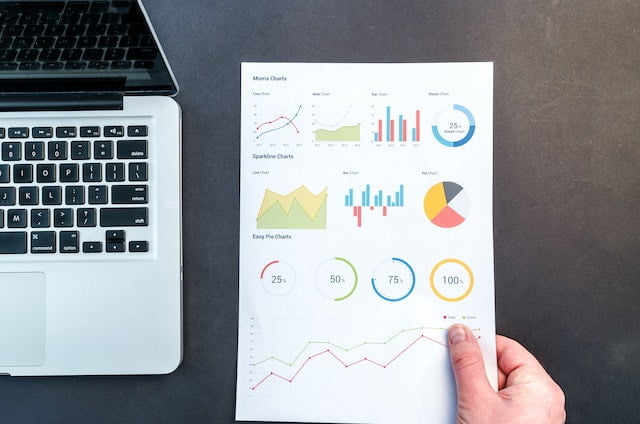In today’s data-rich world, businesses face the challenge of handling vast amounts of information effectively. Thankfully, the rise of business analytics has provided a solution. Business analytics, the art of transforming raw data into actionable insights, has become a crucial component of modern business strategies.
In this blog, we will explore business analytics in Australia, the latest and most accurate information on the best universities, fees, and deadlines for business analytics programs in Australia in 2024.
Key Aspects of Business Analytics
- Data Collection and Preparation: Gathering relevant data from various sources, cleaning, and transforming it into a usable format for analysis.
- Descriptive Analytics: Examining historical data to understand past performance and identify patterns and trends.
- Predictive Analytics: Using statistical models and machine learning algorithms to predict future outcomes based on historical data.
- Prescriptive Analytics: Recommending optimal actions or decisions to achieve specific business objectives.
- Data Visualization: Presenting complex data and analysis results in visual formats (charts, graphs, dashboards) to facilitate understanding and insights.
- Big Data Analytics: Handling large and diverse datasets that require specialised tools and techniques for processing and analysis.
Business analytics is widely used in various industries and functions, including marketing, finance, operations, supply chain management, human resources, and customer service. It helps businesses gain a competitive advantage by enabling data-driven decision-making and fostering a culture of continuous improvement.
Business analytics has become an indispensable tool for organizations seeking to thrive in a data-driven world. By harnessing the power of data through descriptive, predictive, and prescriptive analytics, businesses can gain valuable insights, drive innovation, and stay ahead of the competition. Embracing a data-driven culture will empower businesses to make informed decisions that lead to lasting success in the ever-evolving landscape of the business world.
Top Universities in Business Analytics in Australia in 2024
Here are the universities in Australia known for their strong Business Analytics programs:
| Rank | Universities | Location |
|---|---|---|
| 1 | University of Melbourne | Melbourne, Victoria |
| 2 | University of Adelaide | Adelaide, South Australia |
| 3 | Macquarie University | Sydney, New South Wales |
| 4 | La Trobe University | Melbourne, Victoria |
| 5 | Western Sydney University | Sydney, New South Wales |
Why Study Master’s in Australia?
Studying a Master’s in Business Analytics (MSBA) in Australia offers several advantages due to the country’s strong education system, diverse culture, and thriving job market. Here are some reasons why you might consider pursuing this program in Australia:
- Quality Education: Australian universities are known for offering high-quality education and are recognized globally. Many universities have strong business and technology faculties, providing a solid foundation for a Business Analytics program.
- Reputation: Several Australian universities are well-regarded in the field of business and analytics. Degrees from these institutions can enhance your credentials and open doors to various job opportunities.
- Multicultural Environment: Australia is a diverse and multicultural country, welcoming students from all over the world. Studying in such an environment can enrich your experience, expand your horizons, and help you develop a global network.
- Strong Job Market: Australia has a growing demand for professionals in the field of data analytics and business intelligence. Completing a Master’s in Business Analytics can provide you with the skills needed to tap into this job market, which includes opportunities in various industries such as finance, healthcare, retail, and more.
- Work Opportunities: Australia offers post-study work visas that allow international students to work for a certain period after completing their studies. This can be a great way to gain practical experience and apply what you’ve learned in real-world scenarios.
- Networking Opportunities: Australian universities often have strong ties with industries and businesses. Many programs incorporate industry projects, internships, or collaborations, providing you with valuable networking opportunities.
- Cutting-Edge Curriculum: Business Analytics programs in Australia are designed to equip students with the latest skills and knowledge in data analysis, data visualization, predictive modelling, and more. You’ll be exposed to industry-relevant tools and techniques.
Remember that choosing to study abroad is a significant decision. It’s important to thoroughly research the universities and programs you’re interested in, and consider the costs, potential scholarships, and the specific curriculum each program offers. Additionally, consider your long-term career goals and how a Master’s in Business Analytics from Australia aligns with them.
Masters in Business Analytics (MSBA) in Australia
Course Overview
Here’s a table for the course overview for MS in Business Analytics:
| Program | MS in Business Analytics |
|---|---|
| Type | Part-Time / Full-Time |
| Duration | 1-2 years |
| Eligibility Criteria | Bachelor's Degree in related field |
| English Proficiency Test Score | IELTS (6.5+) / TOEFL 86+ |
| Tuition Fee | AUD 31,000 - 38,000 |
| Average Salary | AUD 88,000 |
Top Universities – Program & Tuition Fees
| University | Program | Tuition Fee (AUD) |
|---|---|---|
| University of Melbourne | MS in Business Analytics | 65,760 |
| University of Adelaide | MS in Business Analytics | 49,000 |
| Macquarie University | MS in Business Analytics | 40,800 |
| La Trobe University | MS in Business Analytics | 36,400 |
| Western Sydney University | MS in Business Analytics | 33,352 |
| University of Wollongong | MS in Business Analytics | 48,096 |
Admissions
Admission requirements for a Masters in Business Analytics program in Australia can vary depending on the university and the specific program. However, there are common elements that most universities consider during the admission process.
Here’s an overview of what you might need to prepare for when applying for a Master’s in Business Analytics in Australia:
- Educational Background: Typically, you’ll need a relevant undergraduate degree. Many programs prefer applicants with a background in business, economics, mathematics, engineering, computer science, or a related field.
- Academic Transcripts: You’ll need to provide your official academic transcripts from your previous education. These transcripts should outline the courses you’ve taken and the grades you’ve received.
- English Language Proficiency: As most programs are taught in English, you’ll need to demonstrate your proficiency in the language. Commonly accepted English language tests include IELTS, TOEFL, and PTE. The required minimum scores can vary between universities and programs.
- Letters of Recommendation: Some universities might ask for letters of recommendation from professors, employers, or other professionals who can attest to your academic abilities and potential for success in a Master’s program.
- Statement of Purpose (SOP) or Personal Statement: This is your opportunity to explain why you want to pursue a Master’s in Business Analytics, your career goals, and how the program aligns with your aspirations. Be sure to highlight your relevant skills and experiences.
- Resume/CV: Provide a comprehensive resume or CV that outlines your educational background, work experience, internships, projects, and any relevant certifications.
- Entrance Exams: Some universities might require standardized entrance exams such as the GRE or GMAT. Check the specific requirements of the program you’re interested in.
- Work Experience: Some programs might require or prefer applicants to have relevant work experience in fields such as data analysis, business, or technology.
- Interview: In some cases, universities might conduct interviews to assess your suitability for the program.
- Application Form: Each university will have an online application form that you need to complete. Be sure to follow the instructions carefully and provide accurate information.
Application deadlines vary, but they are often several months before the start of the academic year. It’s recommended to start your application well in advance to ensure you have enough time to gather all required documents, take any necessary tests, and complete the application form accurately.
Admission Requirements and English Proficiency Test Scores
| University | Admission Requirements | IELTS Score | TOEFL Score |
|---|---|---|---|
| University of Melbourne | Bachelor's degree of 3 years minimum in a related field | 7.0 overall | 102, a minimum written score of 24, and a band total of no lower than 21. |
| University of Adelaide | Bachelor's degree or equivalent | 6.5 overall | Overall 79 |
| Macquarie University | Bachelor’s degree | 6.5 overall | Overall 83 |
| La Trobe University | Bachelor's degree | 6.5 overall | Overall 79 |
| Western Sydney University | Bachelor's degree | 6.5 overall | Overall 82 |
| University of Wollongong | Bachelor's degree with at least 50% score | 6.5 overall | Overall 86 |
Completing a Master’s in Business Analytics in Australia represents the culmination of your academic journey and the beginning of a new chapter in your professional life. With your enhanced skills, industry knowledge, and global perspective, you are well-equipped to make meaningful contributions to the world of data analysis and business intelligence, driving informed decisions and innovation in various sectors.
Are you passionate about harnessing the power of data to drive business success? Imagine studying in Australia, a country known for its world-class education, stunning landscapes, and diverse culture. Take the first step towards a rewarding career by pursuing a Master’s in Business Analytics in Australia!
Don’t miss out on the chance to advance your career with a Master’s in Business Analytics in Australia. Your future starts now!
Connect with us at AdmitX and start your journey now!








